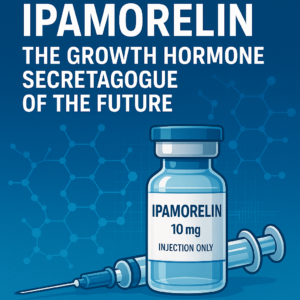Introduction to Kratom and Detox
Kratom, derived from the leaves of the Mitragyna speciosa tree, has gained popularity for its potential benefits, particularly for those undergoing detoxification. It’s important to understand what kratom is, how it interacts with the body, and its potential role during a detox process. Traditionally used in Southeast Asia, kratom has made its way into Western discussions about herbal remedies, especially in relation to addiction recovery.
When people consider detoxing, whether from opioids or other substances, the need for coping strategies becomes paramount. Some people look at kratom to alleviate withdrawal symptoms. Still, it raises the question: is using kratom during detox a smart choice or a risky decision?
Understanding Kratom
What is Kratom?
Kratom has both stimulant and sedative properties, depending on the dose. Low doses typically energize the user, while higher doses may offer calming effects. Its primary active compounds, mitragynine and 7-hydroxymitragynine, bind to the same receptors in the brain as opioids, potentially easing pain and managing withdrawal symptoms.
However, kratom is not without its controversies. The FDA has flagged it due to concerns over safety and dependency. Users must approach this substance with caution, especially during detox.
How Does Kratom Work?
Kratom interacts with opioid receptors in the brain. These receptors control pain and pleasure sensations. At lower doses, kratom can boost energy and focus. At higher doses, it may create feelings of calm or euphoria.
Despite its potential benefits, the way kratom affects different individuals can vary widely. Therefore, what works for one person may not work for another. Understanding one’s body and consulting healthcare professionals before using kratom during a detox becomes crucial.
Kratom’s Popularity
The rising popularity of kratom, particularly in the U.S., links to its perceived benefits for those dealing with chronic pain and opioid dependence. Social media and online forums have spread the word about kratom’s potential. Many users attribute their successful detox experiences to this herb.
At the same time, the lack of regulation in the kratom market leads to varying product quality. Users should research brands and product sources. This inconsistency raises safety concerns that cannot be overlooked.
The Detox Process
Understanding Detox
Detoxification is the body’s natural process of eliminating toxins. In the context of substance abuse, detox often involves withdrawing from drugs or alcohol. This process can cause severe withdrawal symptoms, making it challenging for individuals to cope.
Common withdrawal symptoms may include:
- Anxiety
- Nausea
- Muscle aches
- Fatigue
- Insomnia
Each individual’s experience may vary, depending on factors like the substance used, duration of use, and overall health.
Traditional Methods of Detox
Traditionally, detox programs may include medical supervision, therapy, and support groups. Medications can help manage withdrawal symptoms, such as methadone or buprenorphine for opioid addiction. These methods focus on reducing discomfort and providing psychological support.
In this context, individuals often search for alternative methods to enhance their detox experience. This includes the use of supplements, herbal remedies, and possibly kratom. However, it’s essential to weigh the risks.
Pros of Using Kratom During Detox
Pain Relief
One of the most significant advantages of kratom is its potential for pain relief. For those detoxing from opioids, kratom may help ease withdrawal symptoms. Users often report reduced discomfort, making it a tempting option.
Reduced Withdrawal Symptoms
Kratom may alleviate specific withdrawal symptoms, such as anxiety and insomnia. Some individuals notice an improvement in mood and overall well-being while using kratom. This effect can make the detox process feel less daunting.
A Natural Alternative?
Kratom presents itself as a natural alternative to prescribed medications. Some individuals prefer herbal solutions for managing withdrawal symptoms. They may view kratom as a more holistic approach, aligning with their beliefs about wellness.
Cons of Using Kratom During Detox
Risk of Dependency
The most significant concern with kratom is its potential for addiction. Like opioids, kratom can lead to dependency with prolonged use. Therefore, individuals using it for detox must consider the risk of substituting one addiction for another.
Unregulated Quality
Kratom products vary widely in terms of quality and potency. The lack of regulation can lead to contaminated or adulterated products. Users might not know what they’re actually consuming, which poses significant health risks during a vulnerable time.
Unpredictable Effects
Kratom’s effects can be unpredictable and differ from person to person. While some may experience relief, others might have negative reactions like increased anxiety or nausea. These unpredictable effects can complicate an already intense detox experience.
Strategies for a Safe Detox
Consult a Healthcare Professional
Before considering kratom or any supplement during detox, consult a healthcare provider. They can provide tailored advice and alternatives based on individual needs and circumstances.
Gradual Introduction
For those who decide to try kratom, a slow and cautious approach is advisable. Start at low doses to gauge how your body responds. Monitoring its effects closely can help adjust usage safely.
Combine Approaches
Instead of relying solely on kratom, consider combining it with traditional detox methods. Integrating therapy, support groups, and other holistic approaches can lead to more effective outcomes. A comprehensive strategy offers better support for both the body and mind.
Alternative Remedies for Detox
Herbal Teas
Herbal teas, such as chamomile or ginger, can help soothe the body during detox. They provide hydration and may ease nausea, contributing to overall comfort.
Exercise
Light exercise can enhance mood and alleviate some withdrawal symptoms. Activities such as yoga or walking can promote endorphin releases, supporting emotional well-being.
Mindfulness Practices
Practices like meditation and deep breathing can help manage anxiety during detox. These techniques offer coping strategies, aiding in emotional regulation.
Conclusion
Using kratom during a detox is a decision that requires careful consideration. While potential benefits exist, the risks are equally significant. Individuals must weigh their options and understand the complexities involved.
A multidisciplinary approach, combining medical and holistic strategies, often yields the safest results. Consulting with professionals equips individuals with the tools needed to navigate their detox journey successfully.
FAQs
1. Is kratom safe to use during detox?
The safety of kratom during detox varies among individuals. Consult a healthcare professional before considering it as an option.
2. Can kratom replace traditional detox methods?
Kratom should not replace traditional methods. It can be used alongside them, but professional guidance is essential.
3. What are the potential side effects of kratom?
Common side effects include nausea, dizziness, and increased anxiety. Individual responses may vary.
4. How does kratom compare to opioids?
Kratom interacts with the same brain receptors as opioids but carries the risk of dependency itself. Research the differences before using.
5. Are all kratom products trustworthy?
Not all kratom products are of high quality. Look for reputable brands and read user reviews before purchasing.
6. How can I reduce withdrawal symptoms naturally?
Consider herbal remedies, light exercise, and mindfulness practices. They can support your detox journey naturally.
7. What if kratom doesn’t work for me?
If kratom doesn’t provide relief, speak with a healthcare provider for alternative options to manage withdrawal symptoms.
8. Can I develop a tolerance to kratom?
Yes, regular use of kratom may lead to tolerance, requiring larger doses for the same effect.
9. How long does it take to detox from opioids?
Detox duration varies based on the individual and substance used. It can take several days to weeks for symptoms to subside.
10. Is there ongoing research on kratom?
Yes, researchers are actively studying kratom’s effects, risks, and potential benefits. Stay updated for the latest findings.
References
- National Institute on Drug Abuse. (2021). “Understanding Drug Use and Addiction.” www.drugabuse.gov
- Food and Drug Administration. (2020). “FDA Issues Warning on Kratom.” www.fda.gov
- Mayo Clinic. (2021). “Kratom: Is it Safe?” www.mayoclinic.org







